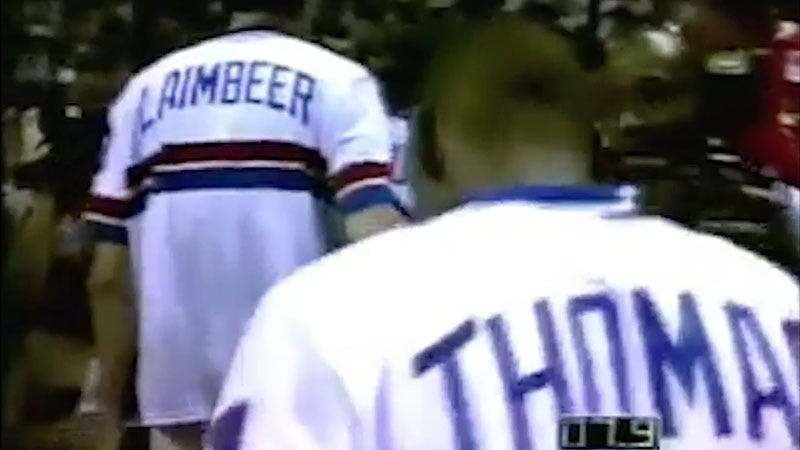The Walkoff: a love story.
The broadcast doesn’t show when the planning started but it was brewing throughout the fourth quarter in the form of Bill Laimbeer, the baddest of the Bad Boys. He had been on the bench since about six minutes remaining in the third quarter, nothing to do but stew on 24 hours of disrespect. On five years of disrespect. On his chickens coming home to roo…

